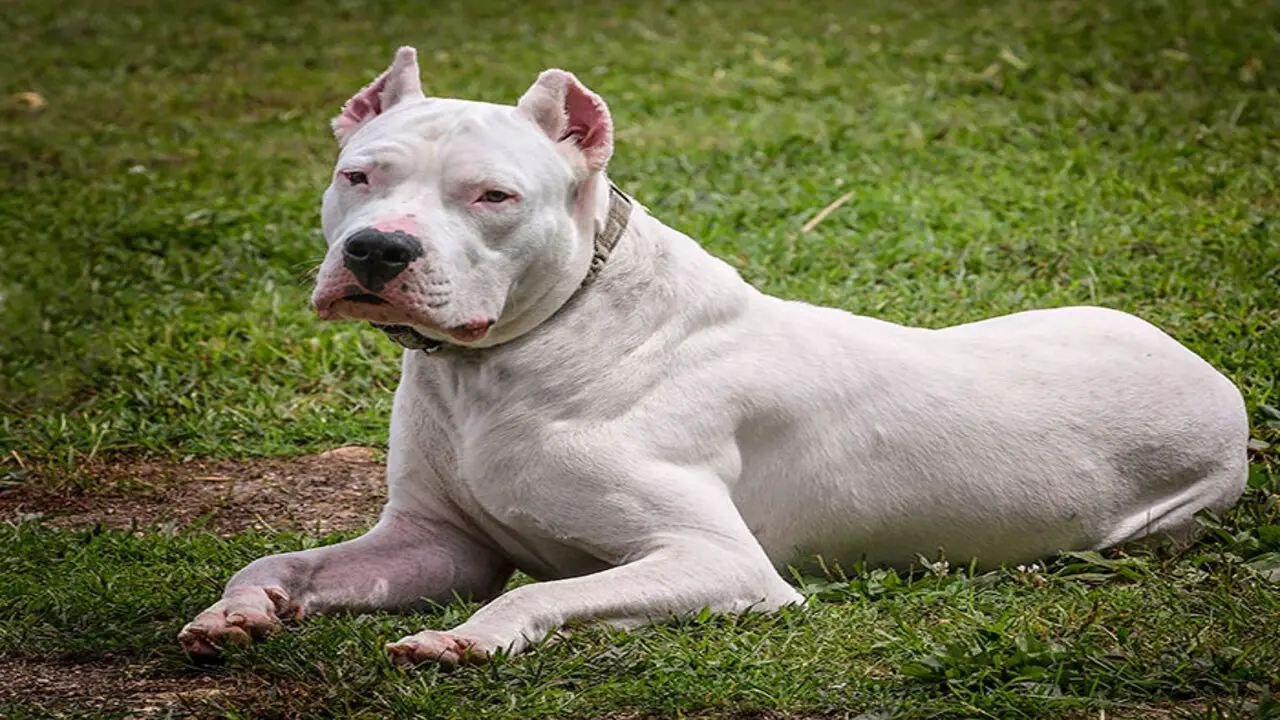Breeding dogs can be a rewarding and fulfilling experience for amateur breeders passionate about dogs. However, it is imperative to thoroughly understand the basics of amateur breeding dogs before embarking on this journey.
Breeding dogs is not just about bringing two dogs together; it requires careful planning, knowledge, and commitment. Amateur breeders must have the necessary skills and knowledge to ensure their dogs and their offspring’s health and well-being.
This comprehensive guide aims to provide amateur breeders with the essential information to start breeding dogs responsibly. We will delve into the fundamental concepts of amateur breeding dogs, including breeding goals, selecting the right breeding pair, breeding techniques, and caring for puppies. We will also discuss the legal requirements and ethical considerations that amateur breeders must adhere to.

What Is Amateur-Breeding?

Amateur -breeding refers to individuals who breed dogs without professional knowledge or experience. Unlike professional and responsible breeders who carefully select breeding pairs based on health, temperament, and breed standards, amateur breeders may lack the necessary expertise and resources to ensure the well-being of the dogs and produce healthy offspring.
This can lead to various issues, including genetic disorders, poor socialization, and inadequate care for the puppies. It is important to note that amateur -breeding is generally discouraged by reputable dog organizations and animal welfare advocates, as it can contribute to overpopulation and the proliferation of unhealthy and poorly bred dogs.
Why Amateur Breeding Can Be Dangerous

Amateur breeding can be dangerous for both the dogs and individuals attempting to breed them. Without proper knowledge and experience, amateur breeders may not understand the complexities of genetics and breeding practices, leading to health issues in the offspring. Inbreeding, for example, can result in a higher risk of genetic disorders and compromised immune systems.
Additionally, amateur breeders may not have access to necessary medical care or be aware of breeding regulations and standards, putting the health and well-being of the dogs at risk. It is important to work with reputable breeders who prioritize the health and welfare of their animals to ensure responsible breeding practices.
The Importance Of Genetic Diversity

Genetic diversity is crucial in amateur dog breeding to ensure the health and well-being of the dogs. Breeding dogs from the same bloodline can increase the risk of genetic disorders and health issues. By introducing new genes through careful selection of unrelated dogs, breeders can help to reduce the prevalence of inheritable diseases and promote overall genetic health within the breed.
Genetic diversity also helps to maintain desirable traits, such as temperament and physical characteristics, which can contribute to the long-term sustainability and vitality of the breed. Therefore, amateur dog breeders must prioritize genetic diversity in their breeding programs to produce healthy and well-balanced dogs.
How To Determine The Age Of A Dog For Breeding
To determine a dog’s age for breeding, it is essential to consult with a veterinarian. They can assess if the dog is physically mature and ready for breeding. Additionally, breed-specific guidelines should be taken into consideration. Different breeds may have different recommended breeding ages.
In addition to physical maturity, evaluating the dog’s overall health and reproductive readiness is crucial. This includes conducting necessary health screenings and assessing any potential health issues that may affect the breeding process or the health of the offspring.
Signs of sexual maturity, such as behavioural changes, can also indicate if a dog is ready for breeding. These changes may include increased interest in mating or displaying territorial behaviours. However, it is important to note that behaviour alone should not be the sole indicator and should always be supported by veterinary advice.
It is advisable to wait until the dog has reached the optimal breeding age to ensure the health and well-being of the offspring. Breeding too early can increase the risk of complications and health problems for both the mother and the puppies. The optimal breeding age may vary depending on the breed and individual dog.
How To Select The Best Mates For Your Dog
When selecting the best mates for your dog, several factors should be considered to ensure a successful breeding process. First and foremost, evaluating the mate’s health history and genetic background is crucial. This information will help determine whether potential health issues could be passed on to the offspring.
Temperament and compatibility are also essential aspects to consider when choosing a mate for your dog. You want to ensure both dogs get along well and have compatible personalities. This will contribute to a harmonious relationship during the breeding process and potentially improve the temperament of the puppies.
In addition to health and temperament, looking for desirable traits complementing your dog’s characteristics is important. For example, if your dog has a friendly and outgoing personality, you may want to select a mate with similar traits to enhance those qualities in the puppies.
Lastly, seeking guidance from experienced breeders or professionals can provide valuable insights into mate selection. They have extensive knowledge and experience in breeding and can offer advice tailored to your specific dog and breeding goals.
Breeding For Profit Without A License

Breeding dogs for profit without a license is something that needs careful consideration. In many jurisdictions, engaging in this activity without the proper paperwork and authorization is illegal. Operating without a license can have serious consequences, including fines, legal trouble, and damage to one’s reputation.
Licensing is in place to ensure compliance with regulations and animal welfare standards. By obtaining a license, breeders demonstrate their commitment to responsible breeding practices and the animals’ well-being. This includes providing proper veterinary care, quality food, clean water, and a suitable dog environment.
Unlicensed breeding can contribute to overpopulation and strain on resources. Without regulation, there is a higher risk of excessive breeding and the creation of puppy mills, prioritizing profit over animal welfare. To avoid supporting these unethical practices, it is essential to work with reputable breeders who prioritize the health and happiness of their dogs.
Responsible breeding requires more than just financial gain. It requires knowledge, experience, and a deep commitment to the welfare of the animals. Breeding should be done with the intention of improving the breed, not just for monetary gain. It also means being aware of the impact that breeding has on the overall population and making responsible choices to prevent overbreeding.
The Benefits Of Breeding Dogs
Breeding dogs offers various benefits that contribute to preserving and improving specific breeds. This practice allows for the continuation of desirable traits and working abilities that make these dogs unique.
Responsible breeding is vital as it promotes genetic health, reducing the risk of inherited diseases within the breed. By carefully selecting mates, breeders can enhance dog breeds‘ overall diversity and vitality, ensuring a healthier and more robust population.
Breeding dogs can also be a fulfilling and rewarding experience for dedicated enthusiasts. Witnessing the miracle of birth and raising a litter of puppies brings immense joy and satisfaction to breeders.
However, it is essential to note that breeding dogs requires considerable knowledge about canine genetics, proper care, and responsible practices. A good breeder ensures that the welfare of the dogs is a top priority, providing them with proper veterinary care, quality food, and clean water throughout their lives.
Professonal Vs Amateur Breeding

When it comes to breeding, there are important differences between professional and amateur approaches. Professional breeders typically have extensive knowledge and experience in their chosen field, and they often specialize in specific breeds or types of animals.
They are dedicated to maintaining the highest standards of animal welfare and genetics, and they invest significant time and resources into researching pedigrees, health testing, and selecting suitable mates for their animals. In contrast, amateur breeders may lack the same level of expertise and resources.
While some may still have a genuine love for the animals they breed, they may not have the same level of commitment to producing healthy, well-socialized offspring that meet breed standards. It’s important for potential buyers to carefully consider these differences when deciding where to obtain a pet or breeding stock.
Conclusion
Amateur reproduction can be risky if not approached with caution and necessary knowledge. Understanding the importance of genetic diversity and selecting the right dog for breeding is important. Proper preparation for mating and whelping is crucial to ensure the health and safety of mothers and pups.
Breeding for profit without a license is not only illegal but also unethical. If you are considering amateur breeding, thoroughly research and understand the responsibilities and commitments involved. Choose the breed that fits your lifestyle and goals, and always prioritize the well-being and welfare of the dog involved.
Frequently Asked Questions
What Makes You A Backyard Breeder?
Backyard breeders neglect the health and well-being of dogs, skipping health checks and genetic testing. They often sell puppies without proper documentation or vaccinations, posing risks to them and their new owners. Responsible breeding prioritizes dog welfare over profits with careful planning and health testing.
Can I Breed My Dog?
Breeding a dog requires careful planning and consideration. It’s not something that should be taken lightly. Breeding without proper knowledge and experience can lead to health issues for the dog and their offspring. Consult with a veterinarian or experienced breeder before deciding to breed your dog.
Why Is Backyard Breeding Not Illegal?
Backyard breeding is not considered illegal, but it is generally frowned upon by animal welfare organizations. The laws regarding dog breeding vary by state and country, with some regions implementing regulations to ensure the animals’ well-being. Before engaging in any type of dog breeding, it’s crucial to research and understand the legal requirements.
How Hard Is It To Start Breeding Dogs?
Starting a dog breeding business requires dedication and hard work. Learning about genetics, breeding practices, and animal care is essential. Obtaining permits and licenses is necessary for legal operation. Finding suitable homes for the puppies can be challenging.
What Are Some Important Factors To Consider Before Breeding My Dog?
Some important factors to consider before breeding your dog include ensuring their health and genetic well-being, considering breed standards and characteristics for choosing a mate, planning for the care and socialization of puppies, and seeking guidance from professionals like veterinarians or experienced breeders.

Aquarium passion is all about connecting with the aquatic life and providing education to the public on the importance of these creatures. We showcase a wide variety of marine life through our exhibits as well as working with schools to provide unique learning opportunities for students of all ages.




